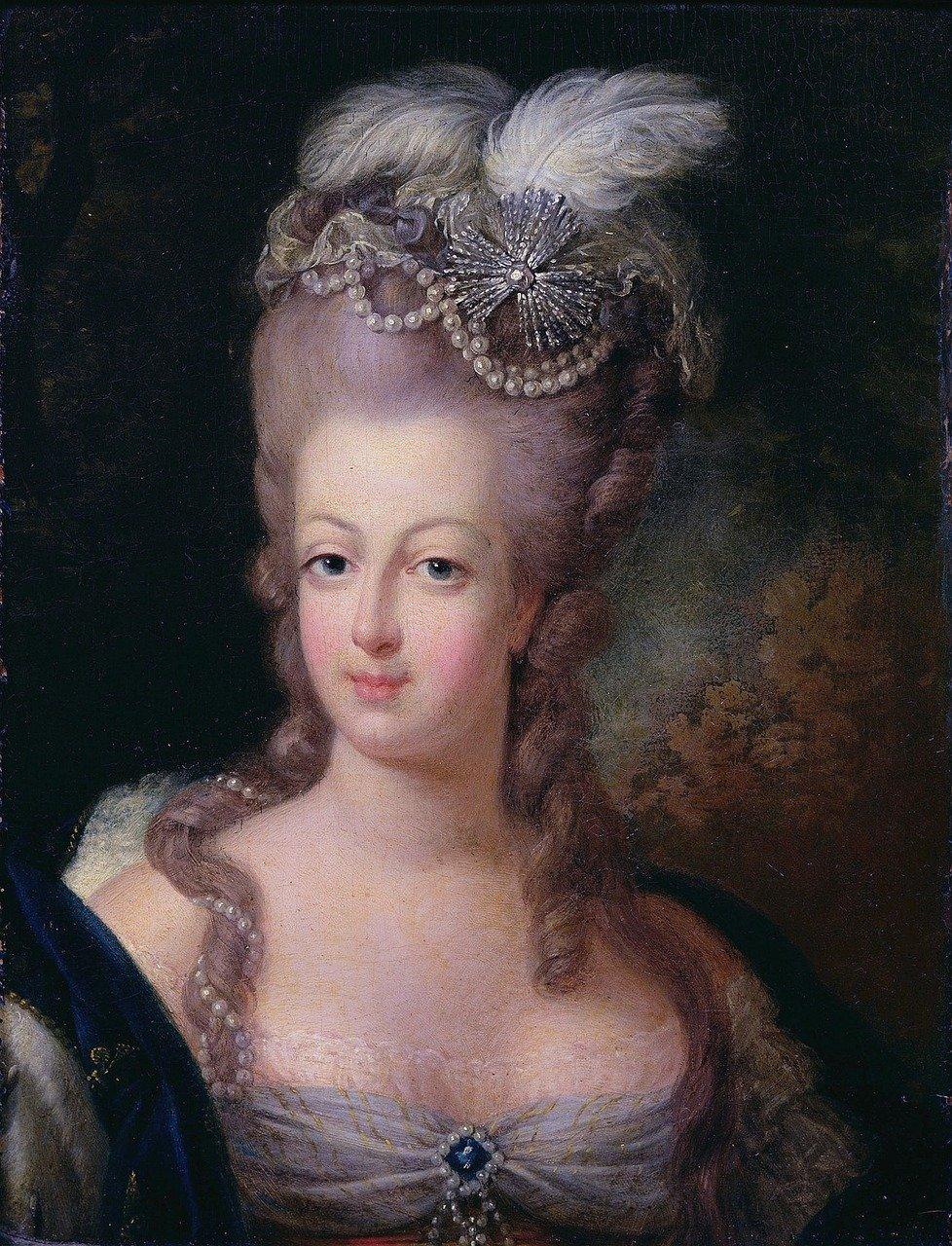Marie Antoinette was born November 2, 1755 to a Holy Roman Emperor Francis. She was born into high society and she remained there throughout her life. Growing up she was used as a pawn by her father when France and Austria were trying to come to an alliance during the Seven Years’ War. At only fourteen-years-old she was assigned to marry dauphin Louis, who was the grandson of King Louis XV. Through this marriage Marie was a representative of Austria in France during a bad time. Marie was seen as an enemy and traitor for the remainder of her life, even after the war ended. This is one of the reasons that Marie is seen as the bad guy throughout much of France’s history. When her husband finally ascended the throne he had grown to be shy and uninterested in politics so Marie had to take a larger role during the French Revolution. Many of the efforts that Marie made to combat the growing revolution were greatly exaggerated because she didn't actually have the kind of power that she tried to wield. One of the things she tried and failed to do was return the power to Etienne-Francois de Choiseul, duc de Choiseul, he was known as the Secretary of war for France during this time. Her attempts were unsuccessful because she was still seen as King Louis’s consort and just a woman from Austria with no real power. After attempting to help France and bring order back from the chaos she pulled back and decided to become the person that the people believed she was. She became only interested in politics to gain favors for her friends and her political influence never exceeded the normal amount of influence of a consort.
Growing unease continued because Marie hadn’t produced an heir and King Louis’s brothers were crowding in on their chance to rule the country. The brothers decided to spread rumors about Marie’s alleged extramarital affairs. This included the Affair of the Diamond Necklace, which was a tale about the queen having a relationship with a Cardinal. That scandal alone put the monarchy in an uproar. They were discredited and it encouraged the nobles to vigorously oppose the financial reforms advocated by the King’s advisors. This also gave the nobles and the peasants the opportunity to despise Marie even more for cheating on their King with a Cardinal. After that hit to her reputation Marie gave birth to the dauphin, Louis, and her daughter Marie-Therese-Charlotte and led a more quiet and out of the public life with her children. She also gave birth to another son Louis XVII while she was living her more conventional lifestyle.
In the beginning of the French Revolution Marie’s popularity was at an all time low. Because she was considered, without justification, to be in the circle of the King’s brother, Charles, and the rumors that the King’s cousin had helped spread about her reputation. Her reputation is one of the main reasons she kept out of politics during this time, it’s also because her oldest son was sick with an illness and later died in June. After suffering with her grief Marie proved to be the stronger one in her marriage especially during the 1789 crises. After the storming of the Bastille she tried to convince her husband to take cover at the Metz, but she ultimately failed. She succeeded in prodding the king to not abolish feudalism and restricting the royal prerogative. Because of the influence she has over her husband she, once again, became the target for agitators, whose animosity contributed to the myth of Marie saying, “Let them eat cake!” In October of 1789 the amount of animosity towards Marie and popular pressure led the royal family to move from Paris to Versailles. At Versailles the family are taken as hostages by the revolution. The queen turned to her friends to get her family out of trouble. Marie and her family were held in Paris to await trial although any attempts to get them out of Paris, they all failed. Marie Antoinette spent the remainder of her life in the parisian prisons and on October 14, 1793 she was brought before the Revolutionary tribunal and was guillotined two days later.
Many parts of Marie Antoinette’s life were exaggerated because she was hated by the public for being Austrian and for being stronger than her husband. She wasn’t the typical tyrant that people believed she was during the revolution.
https://www.britannica.com/biography/Marie-Antoinette-queen-of-France


